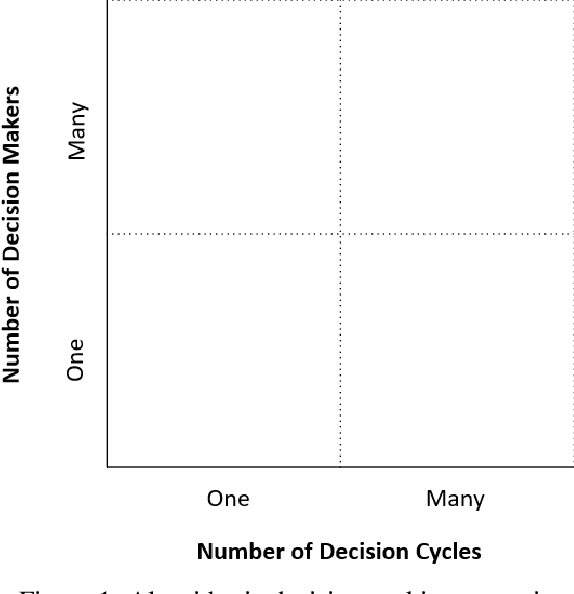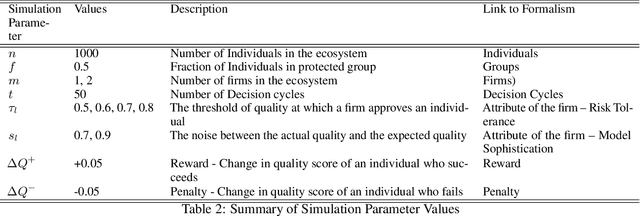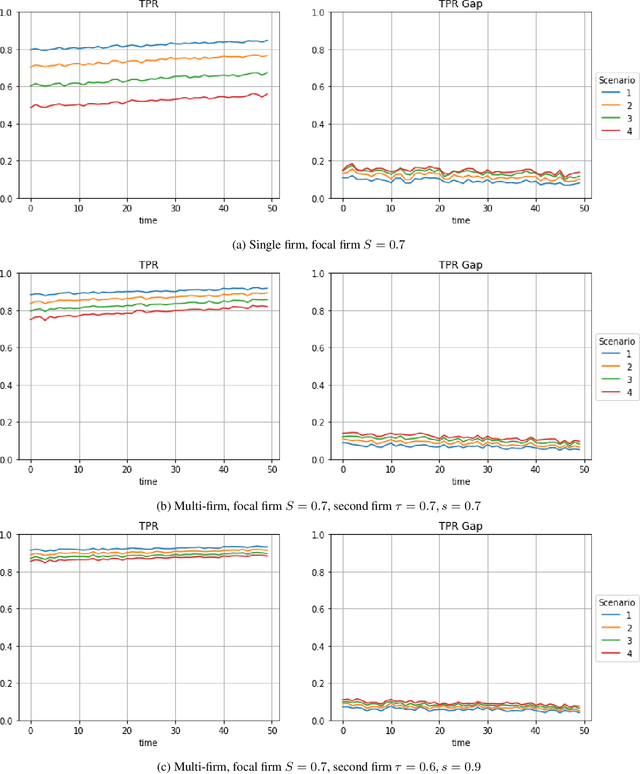Lina Bouayad
Systemic Fairness
Apr 14, 2023



Abstract:Machine learning algorithms are increasingly used to make or support decisions in a wide range of settings. With such expansive use there is also growing concern about the fairness of such methods. Prior literature on algorithmic fairness has extensively addressed risks and in many cases presented approaches to manage some of them. However, most studies have focused on fairness issues that arise from actions taken by a (single) focal decision-maker or agent. In contrast, most real-world systems have many agents that work collectively as part of a larger ecosystem. For example, in a lending scenario, there are multiple lenders who evaluate loans for applicants, along with policymakers and other institutions whose decisions also affect outcomes. Thus, the broader impact of any lending decision of a single decision maker will likely depend on the actions of multiple different agents in the ecosystem. This paper develops formalisms for firm versus systemic fairness, and calls for a greater focus in the algorithmic fairness literature on ecosystem-wide fairness - or more simply systemic fairness - in real-world contexts.
 Add to Chrome
Add to Chrome Add to Firefox
Add to Firefox Add to Edge
Add to Edge